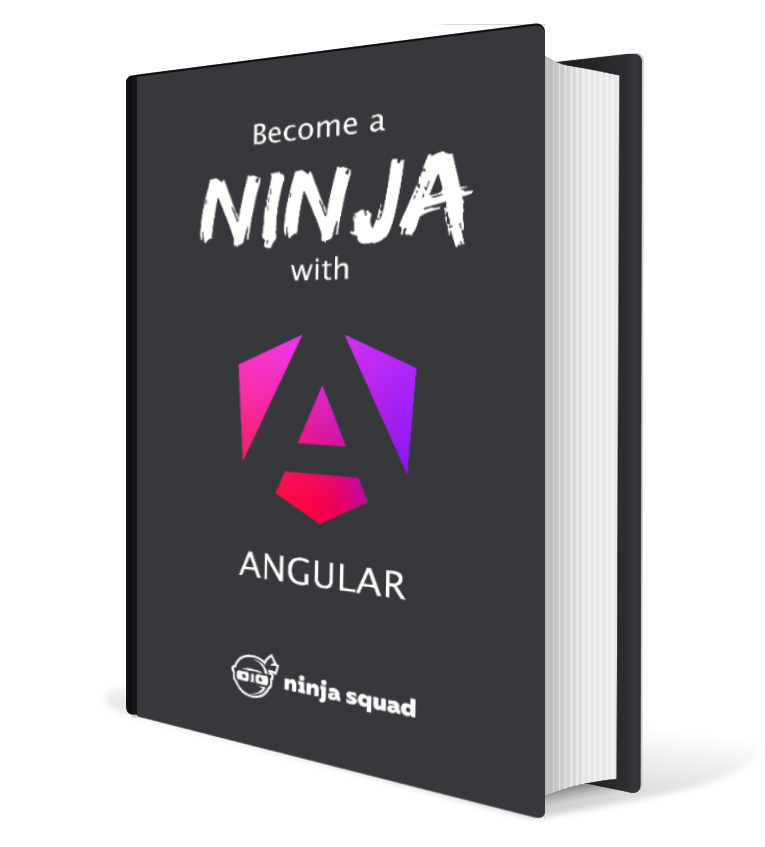The Angular linker (goodbye ngcc!)
Angular 11.1 introduced a new compilation mode. It allows to partially compile a library before shipping it to NPM. What does that mean?
A tale of two compilers
If you have been following Angular history lessons, you may have heard that Angular used to have a compiler called View Engine (VE). Since Angular 9.0, the default compiler is now Ivy (check out our article explaining all that if you missed it)!
A new compiler sounds really breaking though. What about all the Angular libraries published with VE code?
To provide a smooth transition to Ivy,
the Angular team wrote a “compatibility compiler”, ngcc.
The first time you install a dependency,
ngcc has to run to transform the library to an Ivy version.
Let’s take a small example.
My tiny library
You can easily create a library using the Angular CLI. Start by generating a new project with the option that disables the creation of an application:
ng new tiny-lib --defaults --no-create-application
Then generate a library:
ng generate library tiny-lib
The generated library contains a very simple component, perfect for our use case:
@Component({
selector: 'lib-tiny-lib',
template: `<p>tiny-lib works!</p>`,
})
export class TinyLibComponent {
}
The build is already configured for us, so you can easily ship it to NPM, and use it in other projects.
The build configuration is defined in tsconfig.lib.prod.json:
{
"extends": "./tsconfig.lib.json",
"compilerOptions": {
"declarationMap": false
},
"angularCompilerOptions": {
"enableIvy": false
}
}
The interesting part is the enableIvy: false configuration.
Even using Angular CLI v11.1,
the library is configured to be built with View Engine and not Ivy!
That might seem strange, but this is the only way to make sure a project still using View Engine can use our tiny library.
The resulting dist directory, after ng build,
contains several formats (UMD, ESM, FESM).
The tiny-lib.js file in the FESM format contains for example:
class TinyLibComponent {}
TinyLibComponent.decorators = [
{
type: Component,
args: [
{
selector: "lib-tiny-lib",
template: `<p>tiny-lib works!</p>`,
},
],
},
];
ngcc
When we use this library in an Angular Ivy project,
ngcc needs to run to convert the library into an “Ivy” version.
Let’s see what happens.
ng new tiny-app --defaults
yarn add ../tiny-lib/dist/tiny-lib
After updating the AppComponent to use TinyLibComponent,
running ng serve outputs:
Compiling @angular/core : es2015 as esm2015
Compiling @angular/common : es2015 as esm2015
Compiling tiny-lib : es2015 as esm2015
This is ngcc compiling Angular packages and our library into an Ivy compatible format.
If you open node_modules/tiny-lib,
you’ll spot a new __ivy_ngcc__ directory, containing a modified version of the tiny-lib.js file:
class TinyLibComponent {}
TinyLibComponent.ɵfac = function TinyLibComponent_Factory(t) {
return new (t || TinyLibComponent)();
};
TinyLibComponent.ɵcmp = ɵngcc0.ɵɵdefineComponent({
type: TinyLibComponent,
selectors: [["lib-tiny-lib"]],
decls: 2,
vars: 0,
template: function TinyLibComponent_Template(rf, ctx) {
if (rf & 1) {
ɵngcc0.ɵɵelementStart(0, "p");
ɵngcc0.ɵɵtext(1, "tiny-lib works!");
ɵngcc0.ɵɵelementEnd();
}
},
encapsulation: 2,
});
As you can see, there is a new ɵcmp field on the component,
with the definition of the component.
Inside this definition, we can spot a template function,
with Ivy instructions to create the template (elementStart, text, etc.).
Thanks to ngcc, the library is usable in an Ivy project!
ngcc downsides
But ngcc is a bit annoying as well, especially with Yarn.
Yarn has the (weird I agree) habit of blowing out the whole node_modules content
every time you run yarn install.
As ngcc stores the transformed version in node_modules,
you have to run it again every time you run yarn install.
It’s hard to cache, so CI jobs generally need to re-run ngcc on every build.
So why don’t we ship our library in Ivy format directly?
If so, we wouldn’t need to run ngcc.
You can even try it, by switching enableIvy to true.
That sounds great, but it would prevent any changes to the Ivy instructions in the future.
For example, imagine that the Angular team comes with a clever/faster alternative to
replace the text instruction: they wouldn’t be able to ship it,
as all the existing libraries would stop working!
So are we stuck with ngcc forever?
Luckily, no: that’s where the Angular linker enters!
Angular Linker and compilation mode
Starting with Angular v11.1,
it’s possible to partially compile a library.
In our library, let’s add the following option to tsconfig.lib.prod.json:
"enableIvy": "true",
"compilationMode": "partial"
The compilationMode option can have two values:
full, which generates a fully compiled code with Ivy (same result asngccabove)partial, which generates code in a stable, but intermediate form suitable to be published to NPM
The resulting ng build --prod in our library gives us
the following tiny-lib.js:
class TinyLibComponent {}
TinyLibComponent.ɵcmp = ɵɵngDeclareComponent({
version: "11.1.0",
type: TinyLibComponent,
selector: "lib-tiny-lib",
ngImport: i0,
template: `<p>tiny-lib works!</p>`,
isInline: true,
});
As you can see, this is not exactly the same result as ngcc.
We have ngDeclareComponent that looks like defineComponent above,
but the template has not been transformed to Ivy instructions.
This intermediate transformation can be shipped to NPM.
When used in an Ivy project, ngcc will not have to transform the library:
the Angular linker (a new piece of the compiler) has enough information to do its job!
The linker transforms a partially compiled file into a fully compiled one.
The cool thing is:
- the linker is fast, as it has all the required information to do its job 🚀
- it does not touch
node_modulesso we don’t have the problem exposed above 😍 - it is transparent for application developers 🧐
When all the libraries have migrated to this format,
ngcc will be useless in our projects.
This will of course take quite some time:
the partial mode is brand new,
and at the time of writing,
it’s still not recommended to use it.
But we can safely imagine that this will become the default in the future,
and that we’ll be able to remove ngcc from our build pipelines!
Check out our ebook, online training and training if you want to learn more about Angular!



